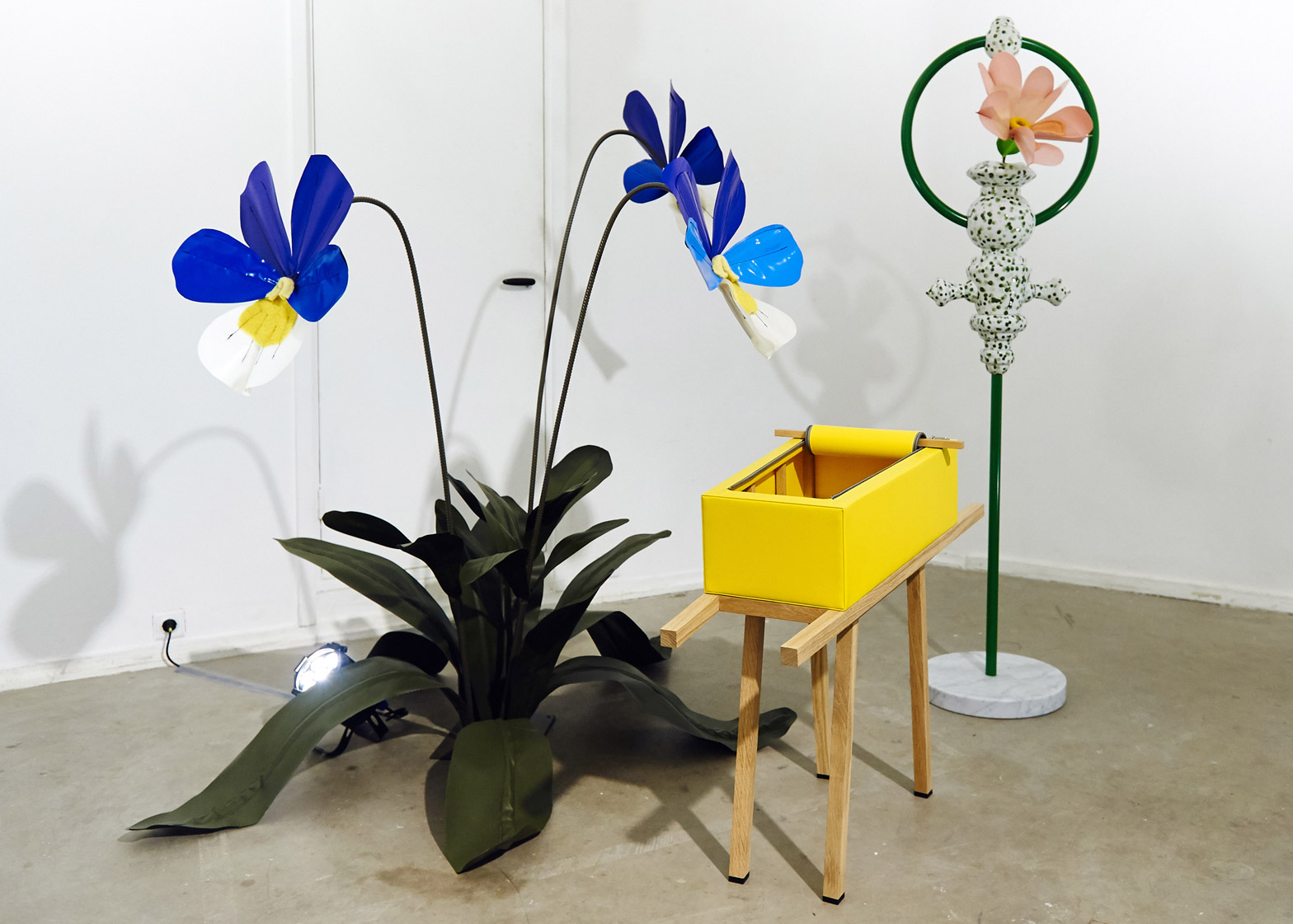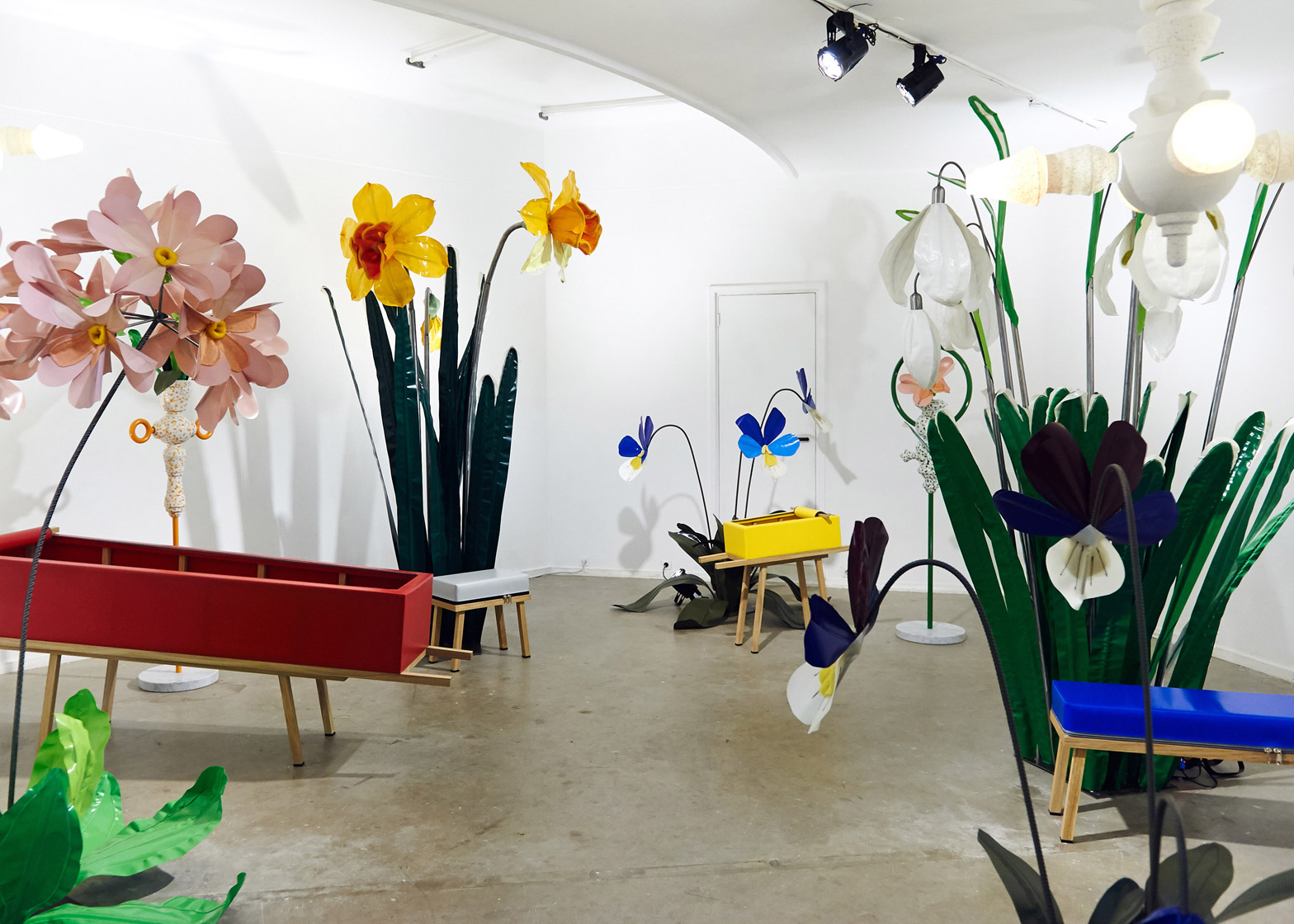Dutch Design Week 2015: Arnhem studio Visser & Meijwaard has designed a range of colourful zip-up coffins to help make death less depressing.
The design duo – made up of Steven Visser and Vera Meijwaard – designed the partially reusable coffins as alternatives to the somber caskets used during traditional funeral ceremonies.
"The majority of coffins are uninspired, old fashioned and expensive," the team told Dezeen. "They don't meet the growing modern idea that the last farewell doesn't have to be that depressing anymore and should be more personal."
Having previously created a range of PVC furniture inspired by zip-up camping wardrobes, Visser & Meijwaard decided to develop the concept into a range of colourful coffins.
Each coffin is made up of three detachable parts: an undercarriage, a stretcher and a PVC cover. Zippers allow the shell to be opened and closed as necessary.
"With the zipper we got rid of the claustrophobic idea of getting nailed into your coffin," they said. "The PVC is very easy to clean and therefore suitable for reuse."
"This way a last farewell can become a lot cheaper and better looking," added the duo. "They present a setting in which you do want to be found dead."
Once wrapped in a sheet, the corpse is laid out on the stretcher and covered with the PVC shell. The cover is removed before the final burial or cremation.
The coffins were presented at this year's Dutch Design Week as part of an exhibition titled Kassiewijle – a Dutch term for when someone has passed away. At the 2009 edition of the event, Design Academy Eindhoven graduate Roos Kuipers presented an open coffin that gradually covers the dead body in layers of fabric.
Ceramics by Netherlands-based Studio KnockOut and giant flowers by artist Linda Nieuwstad were also part of the Kassiewijle exhibition, which aimed to present alternative views on the death industry.
Dutch Design Week 2015 ran from 17 to 25 October. Other graduate projects shown include Bastiaan Buijs' vaulting-horse-style sex toy for men, and Emilie van Spronsen's furniture made from bird flu-infected chickens.
Photography is by Kevin Rijnders.





